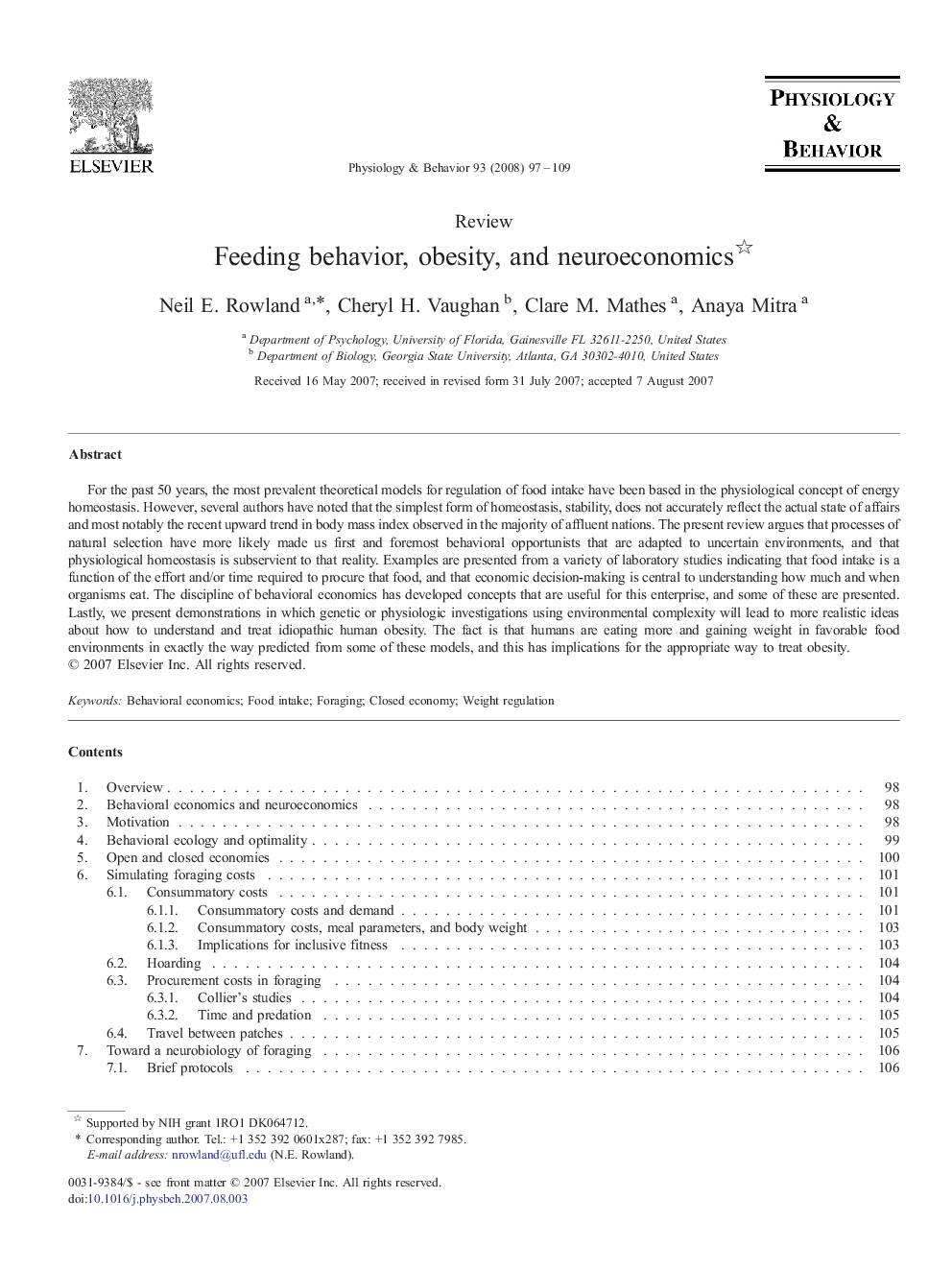| Article ID | Journal | Published Year | Pages | File Type |
|---|---|---|---|---|
| 2845607 | Physiology & Behavior | 2008 | 13 Pages |
For the past 50 years, the most prevalent theoretical models for regulation of food intake have been based in the physiological concept of energy homeostasis. However, several authors have noted that the simplest form of homeostasis, stability, does not accurately reflect the actual state of affairs and most notably the recent upward trend in body mass index observed in the majority of affluent nations. The present review argues that processes of natural selection have more likely made us first and foremost behavioral opportunists that are adapted to uncertain environments, and that physiological homeostasis is subservient to that reality. Examples are presented from a variety of laboratory studies indicating that food intake is a function of the effort and/or time required to procure that food, and that economic decision-making is central to understanding how much and when organisms eat. The discipline of behavioral economics has developed concepts that are useful for this enterprise, and some of these are presented. Lastly, we present demonstrations in which genetic or physiologic investigations using environmental complexity will lead to more realistic ideas about how to understand and treat idiopathic human obesity. The fact is that humans are eating more and gaining weight in favorable food environments in exactly the way predicted from some of these models, and this has implications for the appropriate way to treat obesity.
